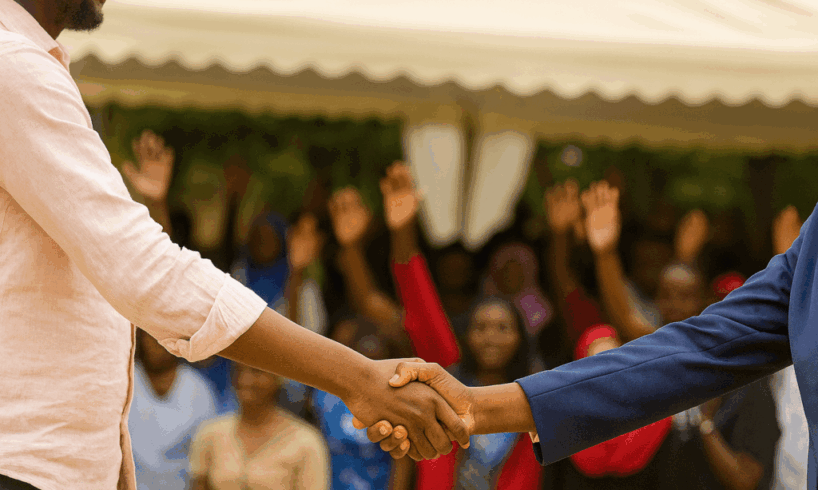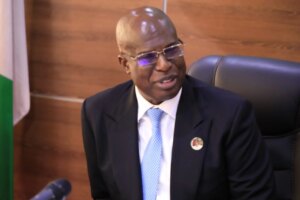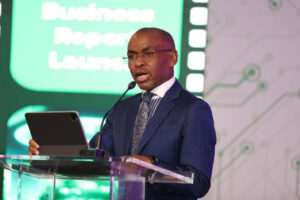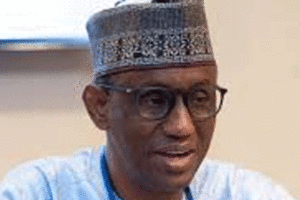
Societal, sociopolitical and economic issues only become recognised as public problems when they are talked about—when discourse frames them as urgent and in need of solutions. In a country where political competition too often descends into hostility, how leaders frame issues matters. The rhetoric they choose can either inflame divisions or chart pathways to solutions.
Hon. Mark Nyamita, the Uriri Constituency MP, recently offered a lesson worth noting. Speaking at a rally alongside Migori Governor Ochilo Ayacko, Nyamita told his supporters to abandon the culture of wielding machetes and rungus against political rivals. He quipped that unless his supporters actually saw him roll up his sleeves and throw punches at the Governor, whose seat he is eyeing in 2027, they should never dream of attacking the Governor’s supporters—or anyone else.
It was a joke, yes, but also a profound rebuke of political violence. Nyamita’s call underscores a principle Kenya’s politics desperately needs: that politics should be about ideas, not weapons; about policies, not fists; about leadership that seeks to solve problems, not fuel divisions.
Migori has not always been such an arena. The county’s political contests have often been marked by hostility, heated rhetoric, and clashes between rival supporters. Yet the emerging contest between Nyamita and Governor Ayacko is shaping into something different—a contest of ideas, a struggle over governance quality, and a referendum on how leadership addresses the daily struggles of ordinary people.
In Suna East and West, business owners and hustlers say Nyamita’s approach is resonating. Beyond criticism, he has become a consistent voice highlighting what county government is doing—or failing to do. His access to county financial data and fiscal plans has enabled him to raise uncomfortable truths, forcing attention on matters long ignored. For the business community, his pressure has begun to yield real gains.
Entrepreneurs note that bureaucratic bottlenecks are easing under the weight of sustained political scrutiny. Healthcare, long neglected, is harder to ignore. Even water provision—often plagued by corruption—has come under the spotlight. Take the Migori-Kuria-Transmara (MIKUTRA) water project. Once crippled by erratic supply and allegations of graft, it now runs more reliably. As one businessman observed, Nyamita’s persistence has kept the taps flowing and curtailed the diversions of public funds.
This is the power of political communication. Scholars call it claims-making—when leaders frame issues, demand responses, and force officials to act. Nyamita has done this around healthcare, water, sanitation, finances, and governance. Each claim has amplified public concern and mobilised citizens to demand better.
The amplification no longer depends on legacy media. In the digital age, every press conference, allegation, or statement finds its way online, sparking debate and pressure. This is classic agenda-setting: issues highlighted until they become impossible to ignore.
The implications are significant. First, it shifts Migori’s political culture away from violence and towards substantive debate. Second, it gives citizens a tangible stake in governance. When water flows, when health facilities are restocked, when permits are processed more efficiently, people see the direct link between leadership and their daily lives. Third, it forces county executives to act—not out of goodwill, but because the political cost of inaction has grown too high.
Of course, Migori politics remains volatile, and 2027 will be hotly contested. But a shift is underway. Leaders like Nyamita are showing that robust public discourse, grounded in facts and people’s needs, can challenge entrenched corruption and neglect.
If sustained, this shift could reshape not just Migori’s politics, but Kenya’s wider democratic culture. The country does not need more rungus and machetes. It needs leaders ready to roll up their sleeves for work, not fights—leaders who raise claims, set the agenda, and compel government to serve the people.
In Migori, citizens are beginning to see the fruits of this kind of leadership. And if their voices continue to shape the conversation, 2027 may be remembered not only for who won, but for how politics itself was contested.





